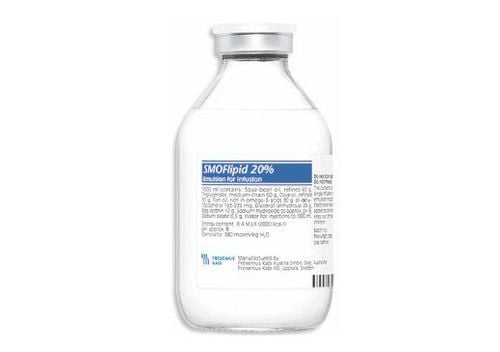This is an automatically translated article.
The article is expertly consulted by a Doctor of Gastrointestinal Endoscopy - Department of Medical Examination & Internal Medicine - Vinmec Da Nang International General Hospital.Peritoneal effusion can have many different causes. Depending on the cause of the disease, the severity and symptoms of the disease also vary. Patients with peritoneal effusion due to cancer will have symptoms: abdominal distension, cough, fatigue, shortness of breath, swelling of the legs, heart failure, pulmonary edema.
1. Causes of peritoneal effusion
1.1. Causes not due to peritoneal injury Portal venous hypertension (albumin difference between peritoneal fluid and serum):In the case of a patient with peritoneal effusion, there is an albumin difference between serum and peritoneal fluid, When portal pressure is increased, the peritoneal ascites albumin concentration gradient is > 1.1 g/dL.
Some possible causes are liver congestion, constrictive pericarditis, tricuspid valve failure, congestive heart failure, Budd - Chiari syndrome or liver diseases such as cirrhosis, hepatitis, liver failure. fulminant liver disease, liver metastases, fluid accumulation between intra-abdominal structures, large intra-abdominal fluid, abdominal effusion due to cirrhosis....
Cases of decreased gradient index, blood albumin concentration If the serum level is <1.1 g/dL, there may be causes such as intestinal disease causing protein loss, severe malnutrition in the form of systemic edema, nephrotic syndrome.
The main cause of peritoneal effusion, accounting for 81% of all cases, is due to cirrhosis. In which, peritoneal effusion with cirrhosis accounted for 65%, peritoneal effusion due to viral cirrhosis accounted for 10%, peritoneal effusion with cirrhosis due to other causes accounted for 6%.
Peritoneal effusion due to heart failure accounts for 3%, in addition to hepatic vein occlusion or Budd - Chiari syndrome, energy-related vegetative diseases in children, congestive heart failure.
Other conditions:
Some other causes of peritoneal effusion include:
Peritoneal effusion due to pancreatitis Bile peritoneal effusion Chylous peritoneal effusion Renal effusion Effusion peritoneum due to urine

Tràn dịch màng bụng do nước tiểu
Peritoneal effusion due to bacterial peritonitis Spill peritoneal effusion due to fungal peritonitis Peritoneal effusion due to tuberculous peritonitis Peritoneal effusion due to peritonitis in HIV-infected patients Cancer is also one of the common causes of peritoneal effusion such as :
Peritoneal effusion due to metastatic peritoneal cancer Peritoneal effusion due to primary hepatocellular carcinoma Peritoneal effusion due to primary mesoblastoma In addition, there are a number of other causes such as: hereditary Mediterranean fever Peritoneal effusion due to vasculitis Peritoneal effusion due to granulomatous peritonitis Peritoneal effusion eosinophilic peritonitis
2. Symptoms of peritoneal effusion
Mild peritoneal effusion usually has no obvious symptoms. Patients usually only detect the disease when the amount of fluid has increased a lot accompanied by symptoms such as:Abdominal stretch, bulging navel Convex

Rốn lồi
Patients with peritoneal effusion due to cancer will have symptoms: abdominal distension, cough, fatigue, shortness of breath, swelling of the legs, heart failure, pulmonary edema, pleural effusion. Patients with peritoneal effusion due to heart failure will have symptoms: dyspnea, wheezing ... Peritoneal effusion has a variety of causes and symptoms, so the best way to accurately determine the condition is to see a doctor. Here, with modern diagnostic methods, the doctor will conclude whether you have a pleural effusion, how much the effusion is and what the cause is, from which a specific treatment plan can be established.
Please dial HOTLINE for more information or register for an appointment HERE. Download MyVinmec app to make appointments faster and to manage your bookings easily.













